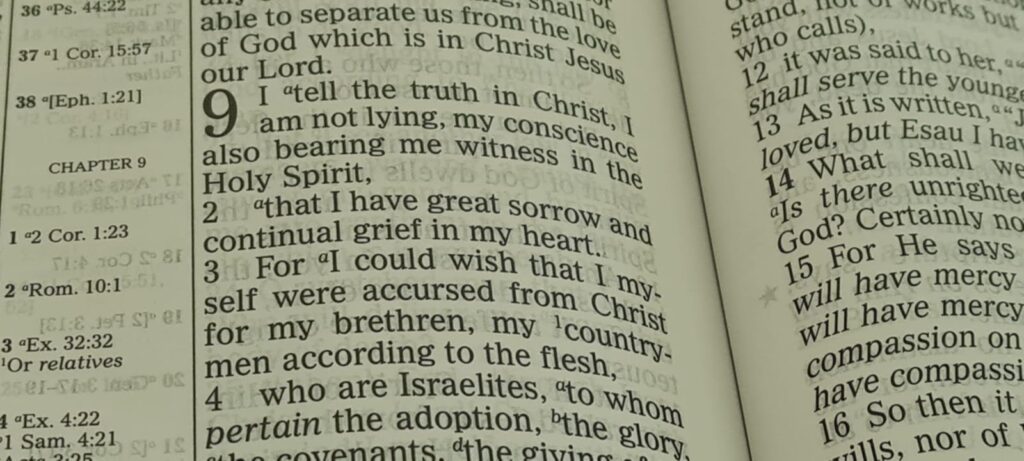Tithing and the New Testament
In Leviticus 27:30-33 – Moses’ law required Israelites to give a tithe (tenth) of their increase to support the Levites. Hebrews 10:9,10 we can notice that the old law, however, is no longer binding since Jesus replaced it. This means churches today have no right to require Christians to tithe.
A Study on Romans Chapter 9
Romans exegesis Chapters 9-11 return to the theme of defending God’s steadfast faithfulness, described as “the righteousness of God” in the early chapters of Romans. The righteousness of God, that is, God’s covenant faithfulness has been revealed through the faithfulness of Jesus for all who believe (Romans 3:23). Turn back to Romans 3:1-8 and recall …
Respect For the Silence of the scriptures
Both the OT and NT show us that the silence of the scriptures have been reverenced throughout the ages In the Old Testament Cain and Abel present the first case for consideration. We are told that Cain’s sacrifice was rejected, while Abel’s was accepted. We are not privy to what God told them, but we …
Instrumental music in the praises of God
By him therefore let us offer the sacrifice of praise to God continually, that is, the fruit of our lips giving thanks to his name,” (Heb 13:15). God created humanity with the ability to use voices to sing praises to Him. The clapping of hands, guitars, etc is not the fruit of the Lips “Why …
Understanding the Holy Spirit
THE HOLY SPIRIT AND SPIRITUAL GIFTS The subject of the Holy Spirit is one of the most misunderstood of all religious topics. Many people claim to have the gift of the Holy Spirit, but don’t know in what measure they have it. Others say that it is impossible to get it all, and still others …
What must I do to be saved
Listening to preachers, pastors, and priests today, one wonders if they could answer the question, “What must I do to be saved?” in a manner similar to the apostles. What Must I Do to be Saved? In the very first sermon recorded, Peter convicted the Jews of participating in the death of the Messiah. “Now …
The one true Church
WHAT IS A CHURCH? The word “Church” is a translation of the Greek word ἐκκλησία (ekklēsia). Greek is the language in which the New Testament was first written. Ἐκκλησίαmeans “a called out assembly,” “a congregation.” It refers to God’s people who are called out of the world into fellowship with Him (I John 1:3; Acts 26:16-18;Colossians …





